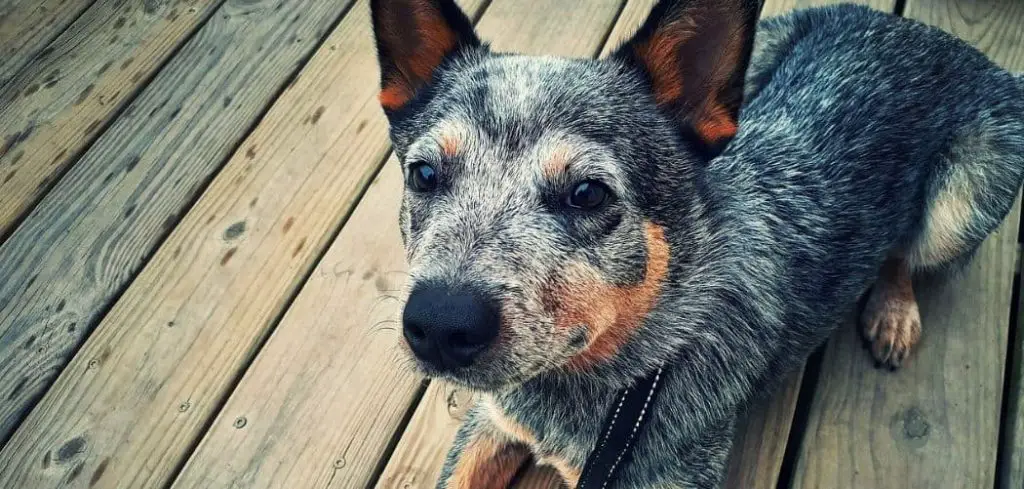If your dog is pooping blood and diarrhea, it can be a deeply alarming sight for any pet owner. These symptoms can range from mild to life-threatening depending on the cause, making it important to pay close attention.
We outline the common reasons your dog has bloody diarrhea, what you can do at home, and when to seek veterinary help.
Table of Contents
Dog Pooping Blood and Diarrhea — Why It Happens
When a dog has both blood in their stool and diarrhea, it usually points to irritation or disease in the digestive tract. Causes may include intestinal infections, parasites, dietary indiscretion, hemorrhagic gastroenteritis, or even ingestion of toxins. In more severe cases, gastrointestinal ulcers, parvovirus, or cancer may be the underlying problem.
The severity often depends on whether the blood is bright red (fresh) or dark and tarry (digested), as well as how quickly diarrhea develops.

Dog Pooping Blood and Diarrhea: Common Causes
Parvovirus
Parvovirus is one of the most serious causes of bloody diarrhea, especially in puppies or unvaccinated dogs.
The virus attacks rapidly dividing cells in the intestines, leading to severe bloody diarrhea, vomiting, lethargy, and dehydration. This condition is life-threatening and requires immediate veterinary intervention.
Intestinal Parasites
Parasites like hookworms, whipworms, and giardia can cause both diarrhea and bloody stools.
They damage the intestinal lining and interfere with nutrient absorption, often leaving dogs weak, malnourished, and sometimes anemic. Puppies are particularly vulnerable, as they can deteriorate quickly.
Read more: Dog Pooping Blood and Vomiting (What it could mean)
Hemorrhagic Gastroenteritis (HGE)
HGE is a sudden and severe condition where dogs develop explosive, bloody diarrhea, often with vomiting.
The exact cause isn’t always clear, but it’s believed to involve bacterial toxins, stress, or dietary triggers. Dogs with HGE can lose fluids rapidly and go into shock if untreated.
Dietary Indiscretion or Food Sensitivity
Dogs that eat spoiled food, garbage, or table scraps may develop diarrhea mixed with blood due to irritation of the intestines.
Similarly, food allergies or sensitivities can inflame the digestive tract, leading to recurrent bouts of diarrhea and occasional bleeding.
Ingestion of Toxins or Foreign Objects
Toxins such as rat poison, certain human medications, or ingesting foreign objects can damage the gastrointestinal lining.
This leads to bloody diarrhea and often other symptoms like abdominal pain, drooling, vomiting, or lethargy. These cases require urgent veterinary care.
Gastrointestinal Ulcers or Cancer
Chronic conditions such as ulcers or intestinal cancers may cause recurrent blood in the stool, often with diarrhea.
These issues tend to develop gradually, and owners may notice weight loss, loss of appetite, or progressive weakness along with digestive changes.
What to Do
If you notice both diarrhea and blood in your dog’s stool, first assess their overall condition. Make sure they have access to fresh water to avoid dehydration.
Withhold food for 12 hours (unless your dog is very young, old, or has health issues), then offer bland meals such as boiled chicken and rice to rest their stomach.
Monitor closely for additional symptoms like vomiting, lethargy, or refusal to drink water. If symptoms are mild and short-lived, supportive care may help, but ongoing or worsening signs should not be ignored.
When to Call or Visit Your Vet
Call your veterinarian immediately if your dog is very young, elderly, or has an underlying health condition, as they are at higher risk of complications.
Seek urgent veterinary care if the diarrhea is persistent, watery, or contains large amounts of blood. Vomiting, refusal to eat or drink, signs of weakness, or abdominal pain are also red flags.
If you suspect ingestion of poison, a foreign object, or if your dog seems extremely lethargic, do not wait—emergency care is essential.
Read more: Dog Pooping Blood Like Jelly (What this means)
Key Takeaway
Seeing your dog pooping blood and diarrhea is never normal and can be a sign of anything from minor irritation to life-threatening illness.
While mild cases may resolve with supportive care, many causes require urgent veterinary attention.
Trust your instincts—if your dog seems unwell or the symptoms are severe, contacting your vet quickly can make all the difference.
